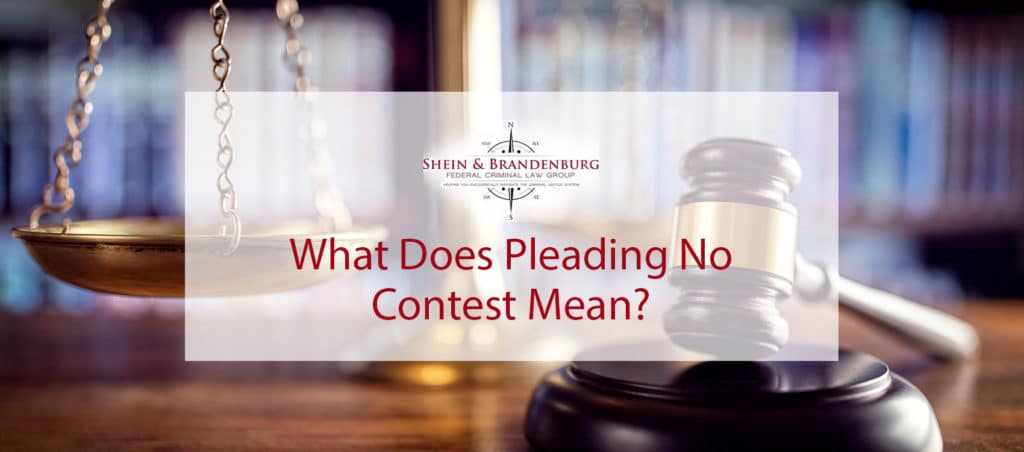Answering the Question: What Does Pleading No Contest Mean?
A no contest plea is a type of plea used in criminal proceeding as an alternative to the more traditional guilty or not guilty plea. Also sometimes known as a nolo contendere plea, a no contest plea is the equivalent of a person stating that he or she does not wish to admit guilt. Consequently, the plea is reflected on a person’s criminal record. The no contest plea is most frequently used during the plea-bargaining process in criminal cases, and choosing to enter this the plea is often a complex process that required the assistance of an experienced federal criminal defense lawyer. The following will review some of the important details that answer the question: What does pleading no contest mean.
The Advantages of Pleading No Contest
No contest pleas result in many consequences that are comparable to guilty pleas. The reason why people decide to enter no contest pleas, however, is that these pleas cannot be used as evidence of guilt in case they end up facing civil actions associated with the criminal offense. Some of the other powerful advantages of a no contest pleas is that they help to avoid costly attorney fees associated with trying a case, they avoid the publicity associated with long trials, they help to speed up the court process, and they can result in a lighter sentence from a judge instead of the uncertainty of proceeding to trial.
The Disadvantages of No Contest Pleas
Unfortunately, it is not true that pleading no contest is always better than pleading guilty or not guilty to a criminal offense. Even though pleading no contest is not the equivalent of admitting guilt, a person is still subject to the same penalties as if the person pleaded guilty. Even though a no contest plea means that a person has neither admitted to nor denied a crime was committed, a court of law is still able to sentence an individual as though he or she admitted to the crime. Even if a person pleads no contest in response to a crime, the offense can still be treated as an aggravating factor in future criminal proceedings. An aggravating factor refers to any type of bad conduct by a person charged with an offense that is used to increase the resulting penalties.
Unique Considerations Involving Plea Bargains
While it is true that a person almost always has the option to decide between pleading guilty and pleading no contest, in situations in which a person is making a plea bargain, the prosecution might request that an individual pleads no contest. Given the unique nature of plea bargains and the sometimes limited availability of these pleas, it is often a wise idea to obtain the assistance of an experienced attorney who can help you determine if a nolo contendere plea is the best option.
Speak with an Experienced Criminal Defense Lawyer
If you have questions or concerns about no contest pleas, you should not hesitate to obtain the assistance of an experienced attorney. Contact the Federal Criminal Law Center today to obtain the assistance of an experienced attorney.


